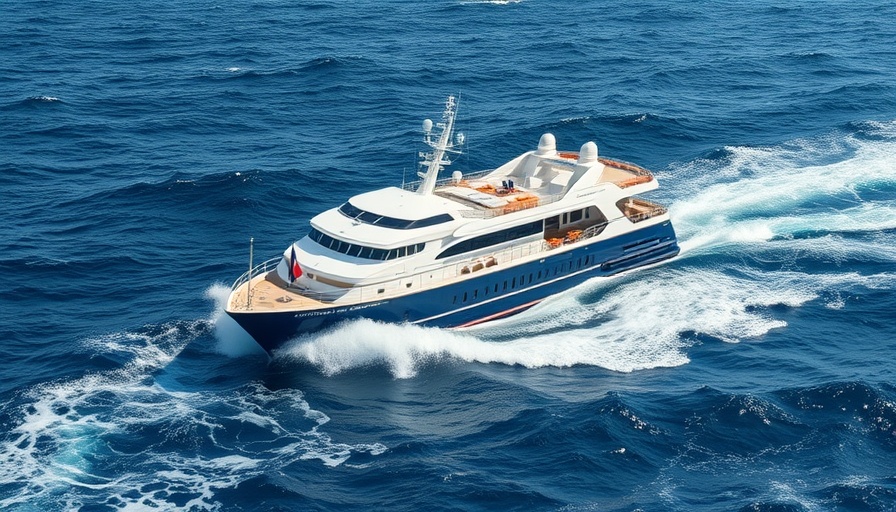
Coast Guard Faces Complex Challenge with Aground Vessel
On August 9, 2025, a notable incident unfolded in Honolulu as the U.S. Coast Guard monitored a passenger vessel, the Discovery, that ran aground near Kewalo Basin. This 75-foot shuttle, operated by Atlantis Adventures, is currently immobilized and secured to the seawall, pending a commercial salvage operation.
According to reports, the vessel lost propulsion after being struck by two large waves, although there were no prior mechanical failures. As Cmdr. Daniel Brahan, the Chief of Prevention at Coast Guard Sector Honolulu, noted, the safe removal of a grounded vessel involves numerous complexities. "We ask that beachgoers and boaters keep a safe distance from the Discovery as salvage operations continue," he emphasized. This request highlights the inherent risks during such operations, underscoring the importance of safety precautions for nearby individuals.
Immediate Response: Safety and Environmental Considerations
Immediately following the grounding, the Coast Guard and other local agencies mobilized to assess the situation. At approximately 8:25 a.m. on August 9, watchstanders were informed of the Discovery's grounding about 60 feet outside of Kewalo Basin Harbor. Thankfully, both the vessel’s captain and a crew member were confirmed uninjured after jet ski crews from the Honolulu Ocean Safety Department reached them.
In response to potential environmental concerns, personnel from Pacific Environmental Corporation (PENCO) acted swiftly to remove all accessible petroleum products from the vessel. This included 2,275 gallons of diesel fuel and 36 gallons of hydraulic oil. Fortunately, as of now, there have been no reports of pollution or sheening in the surrounding waters, which is a significant relief for residents and environmental advocates alike.
The Challenge of Towing Operations
As salvage operations commenced later in the day, Cates Marine Services arrived on the scene to assist with towing the aground vessel. However, attempts to free the Discovery were initially unsuccessful due to equipment failures; the cleats used in towing did not hold, necessitating a halt to the efforts. This raises crucial questions about the reliability of salvage techniques in adverse weather conditions.
Lessons Learned: The Importance of Preparedness in Maritime Operations
This incident serves as a stark reminder of the unpredictable nature of maritime operations. Irrespective of the technology available on vessels, nothing can entirely mitigate the elements' unpredictability portrayed by the sizable waves that disrupted the Discovery. Such events challenge operators and authorities to continually adapt their strategies and improve emergency response protocols.
As discussions about maritime safety and environmental preservation continue, the lessons learned from the Discovery incident are invaluable. Enhanced training for personnel involved in rescue and salvage operations, investment in better equipment, and stronger communication among agencies can contribute to increased safety and efficiency in the future.
The Impact on Local Communities
While this particular incident has drawn the eyes of local and national press alike, it also raises broader questions about the relationship between maritime operators and coastal communities. For Oahu residents and visitors who rely on the ocean for recreation and enjoyment, the effective management of vessels and maritime safety is paramount. Communities need assurance that proper measures are in place to prevent such incidents from affecting the local ecosystem and tourism.
The response to the Discovery grounding stands as a testament to the collaborative efforts among local agencies and the Coast Guard, demonstrating that through proactive measures, swift action can mitigate potential disasters. As salvage operations continue, community engagement and transparency will remain essential in fostering trust among local residents.
 Add Row
Add Row  Add
Add 




Write A Comment